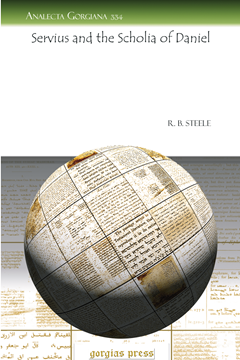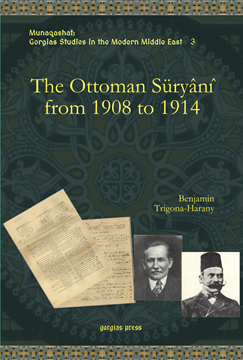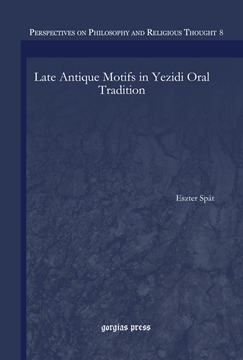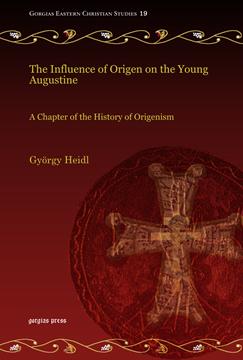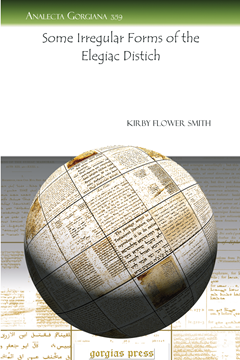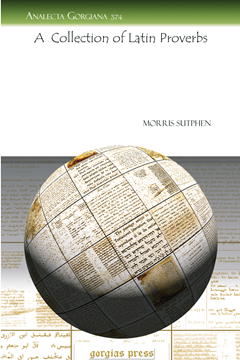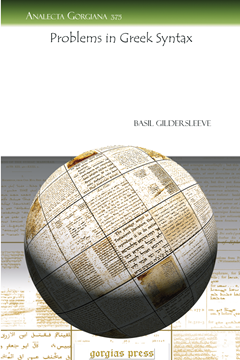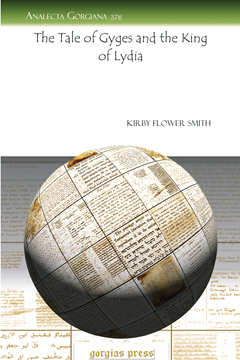Semasiological Possibilities
By Francis Wood
Series: Analecta Gorgiana 333
ISBN: 978-1-60724-615-2
Francis Wood, a linguist known for his work on Latin and Greek etymology, here presents the thesis “Difference in meaning is of itself no bar to connecting words.”
$38.00 (USD)
Servius and the Scholia of Daniel
By R. B. Steele
Series: Analecta Gorgiana 334
ISBN: 978-1-60724-616-9
Steele suggests a division in the longer edition of Servius' commentary on Vergil between Servius and the work of later commentators.
$40.00 (USD)
The Ottoman Süryânî from 1908 to 1914
ISBN: 978-1-60724-069-3
This work explores the misconceptions about the Ottoman Süryânî community of the pre-World War I era, using a critique of the present day historiography as the context for the discussion. The works of three early twentieth century journalists, provide the material for the study. The author contends that this group cannot be considered as Assyrian nationalists, the traditional argument, that they saw the future of the Süryânî people as best secured by the continuation of the Ottoman Empire, in which they sought a greater presence for their community.
$180.00 (USD)
Late Antique Motifs in Yezidi Oral Tradition
By Eszter Spät
ISBN: 978-1-60724-998-6
The Yezidis are a Kurdish-speaking religious minority who practice a highly syncretistic religion based exclusively on oral tradition. Their myths and motifs, besides showing the influence of both Sufism and a pre-Zoroastrian Western Iranian mythology, are related to the religious movements of Late Antiquity, and reveal the vestiges of a common cultural substratum once shared by the people of the region.
$225.00 (USD)
The Influence of Origen on the Young Augustine
A Chapter of the History of Origenism
By György Heidl
Series: Gorgias Eastern Christian Studies 19
ISBN: 978-1-59333-702-5
The main purpose of the book is to demonstrate that as early as the first phase of his activity (386-393 AD), Augustine did make use of some Origenian works, and that basic elements of his early theology were derived from the Alexandrian master.
$219.00 (USD)
Saladin
Empire and Holy War
By Peter Gubser
ISBN: 978-1-60724-669-5
Saladin, the great twelfth century Middle East leader, not only created an empire, but also reduced the Crusader presence in the Holy Land. In a comprehensive manner and clear prose, Peter Gubser describes how Saladin rose to power, conquered lands, governed peoples, and raised armies. In addition, he clearly addresses Saladin’s imperial motives, a combination of ambition and devotion to the ideal of unity in Islam.
$198.00 (USD)
Some Irregular Forms of the Elegiac Distich
Series: Analecta Gorgiana 359
ISBN: 978-1-60724-622-0
Kirby Flower Smith explores the development of Greek and Latin elegiac meter from its origins to Imperial Rome.
$36.00 (USD)
A Collection of Latin Proverbs
Series: Analecta Gorgiana 374
ISBN: 978-1-60724-623-7
Sutphen's list of Latin proverbs from the Classical era through the Middle Ages, arranged aphabetically.
$55.00 (USD)
Problems in Greek Syntax
Series: Analecta Gorgiana 375
ISBN: 978-1-60724-624-4
Basil Gildersleeve discusses certain difficulties in codifying Greek syntax.
$36.00 (USD)
The Tale of Gyges and the King of Lydia
Series: Analecta Gorgiana 376
ISBN: 978-1-60724-625-1
Kirby Smith explores varying 5th and 4th century BC accounts of the life and demise of Gyges, best known from Herodotous' History.
$41.00 (USD)

